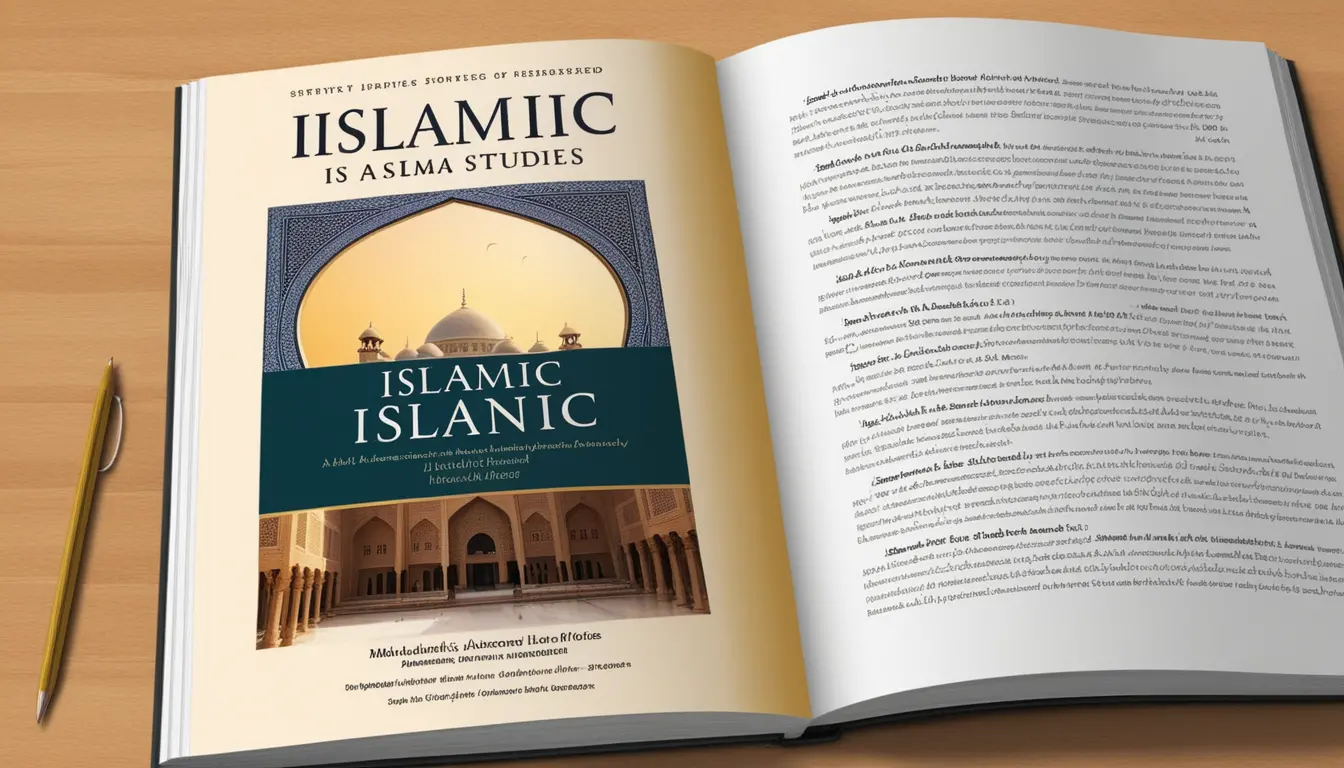Bache Ki Tarbiyat Islami Taleemat Ki Roshni Me free PDF read online

Introduction
Child rearing is a significant responsibility in Islam, where parents are entrusted with the upbringing of their children in a manner that aligns with Islamic teachings. This involves nurturing them physically, emotionally, and spiritually, ensuring they grow into well-rounded and devout Muslims. This article explores the comprehensive approach to child rearing as prescribed in Islam, covering various aspects of a child’s development and the role of parents in guiding them.
Islamic Philosophy of Child Rearing
The Concept of Amanah (Trust)
In Islam, children are considered an Amanah (trust) from Allah. Parents are responsible for this trust, ensuring they provide the necessary guidance and upbringing to help their children lead righteous lives.
The Role of Parents as Guides and Nurturers
Parents in Islam are viewed as the primary guides and nurturers. They are expected to provide not only physical sustenance but also spiritual and moral guidance, setting a positive example through their own behavior.
Stages of Child Development in Islam
Early Childhood (Birth to 7 Years)
During early childhood, the focus is on providing a loving and secure environment. Parents are encouraged to show affection and instill basic manners and values.
Middle Childhood (7 to 14 Years)
In this stage, children are introduced to religious practices such as prayer. Parents should focus on teaching moral values and the importance of following Islamic teachings.
Adolescence (14 Years and Above)
As children grow into adolescence, they begin to take on more responsibility. Parents should guide them in making ethical decisions and understanding their role as Muslims in society.
Also Check PPSC by Imtiaz Shahid, 89th Edition, Free PDF Read Online
Parental Responsibilities in Islam
Providing Love and Security
A loving and secure home environment is crucial for a child’s development. Parents should ensure that their children feel valued and protected.
Ensuring Moral and Ethical Education
Moral and ethical education is a cornerstone of Islamic upbringing. Parents must teach their children the importance of honesty, integrity, and respect for others.
Teaching Religious Obligations
Children should be taught their religious obligations, such as Salah (prayer), fasting during Ramadan, and understanding the basic tenets of Islam.
Islamic Education and Its Importance
Incorporating Quranic Teachings
The Quran is the primary source of guidance in Islam. Teaching children to read, understand, and live by the Quran is essential.
The Role of Hadith in Education
Hadith, the sayings and actions of Prophet Muhammad (PBUH), provide practical examples of living according to Islamic principles. Incorporating Hadith in education helps children understand and apply these teachings in daily life.
Importance of Islamic History and Culture
Teaching children about Islamic history and culture fosters a sense of identity and pride in their heritage. It also provides them with role models to emulate.
Moral and Ethical Development
Instilling Honesty and Integrity
Honesty and integrity are fundamental values in Islam. Parents should emphasize the importance of being truthful and trustworthy.
Teaching Respect and Kindness
Respect for others and kindness are virtues that should be instilled from a young age. This includes respect for elders, peers, and the environment.
Developing a Sense of Justice
A sense of justice and fairness is crucial. Children should be taught to stand up for what is right and treat others equitably.
The Role of Prayer and Worship
Introducing Children to Salah (Prayer)
Prayer is a vital aspect of Islamic life. Parents should gradually introduce their children to Salah, teaching them the proper way to perform it and its significance.
Fasting and Other Religious Practices
As children grow older, they should be introduced to fasting during Ramadan and other religious practices. Parents should explain the reasons behind these practices and encourage participation.
Encouraging Spiritual Growth
Spiritual growth should be nurtured through regular prayer, reading the Quran, and engaging in acts of worship and charity.
Also Check Khawateen Ka Islam 1087 Magazine Free PDF Read Online کا اسلام شمارہ 1087 خواتین
Discipline and Behavioral Guidance
The Balance Between Discipline and Compassion
Discipline should be balanced with compassion. Parents should correct their children’s behavior in a loving and understanding manner.
Effective Methods of Correction
Effective correction involves clear communication and consistent rules. Parents should explain the consequences of actions and guide their children towards better behavior.
Avoiding Harsh Punishment
Harsh punishment is discouraged in Islam. Instead, parents should use positive reinforcement and gentle guidance.
The Influence of Family and Community
importance of a Supportive Family Environment
A supportive family environment is crucial for a child’s development. Parents should foster strong family bonds and encourage open communication.
Role of Extended Family and Community
The extended family and community play a significant role in a child’s upbringing. Involvement in community activities helps children develop a sense of belonging and social responsibility.
Involvement in Community Activities
Engaging in community activities teaches children the value of teamwork and service to others, which are important Islamic principles.
Encouraging Education and Learning
Promoting a Love for Learning
Islam places a high value on knowledge. Parents should encourage their children to develop a love for learning and curiosity about the world.
Balancing Religious and Secular Education
A balanced education includes both religious and secular knowledge. This prepares children to navigate the complexities of the modern world while staying true to their faith.
Encouraging Critical Thinking
Critical thinking is essential for personal and intellectual growth. Parents should encourage their children to ask questions and think deeply about issues.
Healthy Lifestyle and Well-being
Emphasis on Physical Health
Physical health is important in Islam. Parents should encourage healthy eating, regular exercise, and good hygiene.
Ensuring Mental and Emotional Well-being
Mental and emotional well-being is equally important. Parents should create an environment where children feel safe to express their feelings and seek support when needed.
Importance of Play and Recreation
Play and recreation are vital for a child’s development. Parents should ensure that their children have time for leisure and fun activities.
Gender Roles and Equality
Teaching Boys and Girls About Their Roles
Boys and girls should be taught about their roles and responsibilities in Islam. This includes understanding their rights and duties as Muslims.
Promoting Gender Equality
Islam promotes the equality of men and women. Parents should teach their children to respect and value each other, regardless of gender.
Addressing Cultural Misconceptions
Parents should address cultural misconceptions that may conflict with Islamic teachings, ensuring their children understand the true principles of their faith.
Challenges in Modern Child Rearing
Navigating Technology and Social Media
Technology and social media present new challenges. Parents should guide their children on safe and responsible use of these tools.
Countering Negative Societal Influences
Negative societal influences can impact a child’s values. Parents should be vigilant and provide strong moral guidance to counteract these influences.
Maintaining Islamic Values in a Globalized World
Maintaining Islamic values in a globalized world requires a strong foundation in faith. Parents should instill these values from an early age and model them in their own lives.
Success Stories and Practical Examples
Stories of Successful Upbringing
Sharing success stories of other families can provide inspiration and practical insights for parents.
Practical Tips from Islamic Scholars and Parents
Islamic scholars and experienced parents can offer valuable advice and practical tips on effective child rearing.
Also Check Pakeeza Digest May 2024 Read Online | پاکیزہ ڈائجسٹ مئی 2024
Conclusion
Raising children in the light of Islamic teachings is a profound responsibility that requires dedication, patience, and love. By following the principles outlined in Islam, parents can nurture their children to become righteous, knowledgeable, and compassionate individuals. Remember, the goal is to guide them towards a path that pleases Allah and benefits society.
FAQs
Q1: How can I teach my child to love prayer?
Encourage them by praying together, explaining the importance of Salah, and making the experience positive and rewarding.
Q2: What is the best age to start teaching children about fasting?
Children can start practicing light fasting around the age of seven, gradually increasing as they grow older and more capable.
Q3: How can I balance religious and secular education for my child?
Incorporate religious teachings into daily routines and ensure they attend both Islamic and secular educational institutions or programs.
Q4: What should I do if my child questions Islamic teachings?
Answer their questions with patience and understanding, providing clear and age-appropriate explanations.
Q5: How can I protect my child from negative societal influences?
Maintain open communication, monitor their activities, provide a strong moral foundation, and encourage positive peer associations.













3 comments